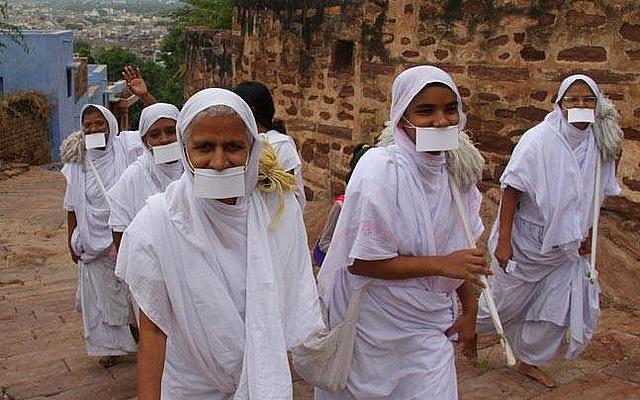
IndiaToday
The Supreme Court on Monday allowed the Jain practice of Santhara, which was earlier banned by a Rajasthsn High Court order, and gave the Rajasthan government and the Centre four weeks to answer why it had opposed the practice.

Jain community members.(Photo: Wikipedia creative commons)
The Supreme Court on Monday allowed the Jain practice of Santhara, which was earlier banned by a Rajasthsn High Court order, and gave the Rajasthan government and the Centre four weeks to answer why it had opposed the practice.
Last week, a Jain body had moved the Supreme Court challenging the Rajasthan High Court order declaring the ritual of Santhara or fasting unto death a penal offence. "It is a victory of India's traditions," a petitioner told reporters outside the apex court.
The petition by Akhil Bharat Varshiya Digambar Jain Parishad said that Santhara was not an act to terminate one's life, but a vow intended to purify the soul from the karmas and it could not be equated with the offence of suicide.
"Conceptually, Santhara or Sallekhana is different from suicide as this vow is not taken either in passion or in anger, deceit, etc. It is a conscious process of spiritual purification where one does not desire death but seeks to live his life, whatever is left of it, in a manner so as to reduce the influx of karmas," the petition said.